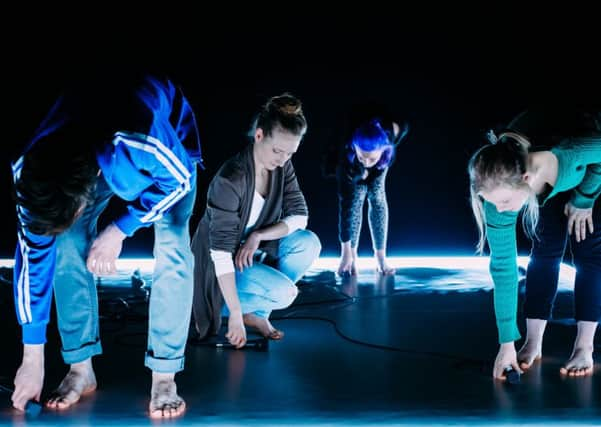Theatre preview: Blackout to come under Made in Scotland spotlight at Edinburgh Festival Fringe


By the time he turned 40, though, he was settled in Edinburgh with a new partner, and decided to aim for his first formal theatre qualification; and as part of that RCS course, he was invited to try writing a play, for the On The Verge festival at The Arches in 2013. He had already been very impressed by some verbatim dramas – drawing on real-life interviews – that he had seen as part of his studies; and now, he felt moved to write one of his own.
“Write about what you know, was what I thought,” he says. And what Jeary knew, from hard first-hand experience, was the story of alcoholism in our society, and how rarely this most widespread of addictions conforms to the classic stereotype of the “alky”, the evil-smelling old bloke drinking meths and sleeping rough on park benches. Jeary himself had been addicted to alcohol from his late teens until his early 30s, without ever becoming homeless or jobless; and after he became sober in 2005, he felt an increasing impulse to create something that would tell the true story of 21st century alcoholism in the UK.
Advertisement
Hide AdAdvertisement
Hide Ad“So when this chance to write something came along,” says Jeary, “I just got someone to interview me, and used that as my initial material. By that time, I was also involved with the Twelve Step recovery movement – I felt I needed to do that, even though I’d been sober for a while, because I wasn’t coming to terms with the spiritual dimension of it, the things that had made me drink in the first place.
“So that meant I was developing this wide network of contacts among people in recovery, some of whom were happy to be interviewed; and on that basis I began to create this show called Blackout, with five characters including a version of myself, each of whom tells their story of addiction. Three of the characters are women, and most of them are quite young, and I think that’s extremely important to the point we’re trying to make. Go to an Alcoholics Anonymous meeting in Glasgow or Edinburgh now, and there’s often a majority of women. And those meetings are not miserable, either. There’s a lot of laughter, and I want audiences to see how happy people can be in their recovery, once they get the support they need.”
And right from the moment when Jeary first presented the show in 2013, the response to it has exceeded his expectations. In 2014 it appeared for a short run on the Edinburgh Free Fringe, and then briefly in London; it was picked up by young producer Callum Smith, and in 2016 won Creative Scotland funding for a Scotland-wide small-scale tour.
This time around, the show was directed by Paul Brotherston of the acclaimed young Glasgow company Blood Of The Young, who stripped back the action to throw a clearer light on the individual stories, and helped develop the show into a powerful touring production. “Sometimes you need a show that has plenty of bells and whistles and theatrical devices,” says Brotherston, referring to the company’s current smash-hit version of Pride And Prejudice at the Tron. “But with Blackout, I just felt that the dramatic power was coming straight from the truth of these stories, and that we had to focus very clearly on that.”
Once again, the response to the show was extraordinary, as it drew capacity audiences in venues from Glasgow to Stornoway, always generating powerful post-show discussions; and after that tour, the show won the accolade of inclusion in the 2018 Made In Scotland programme, which enables outstanding Scottish-made work to meet the financial challenge of a full run on the Edinburgh Fringe. “What I noticed right from the start is how wide the appeal of this show is,” says Jeary. “It appeals to people who like a good piece of theatre, and to people who enjoy verbatim drama.
“Then it also means a great deal to people who are in recovery, and to the families and colleagues of those people. And of course I’m always changing it in the light of the audience response, which gives it this dynamic, living quality; I recently introduced the character of a young Muslim woman, a Palestinian living in the west, and for most people that’s a new concept, a young Muslim woman with an alcohol problem.”
For Jeary, the show has had a transforming impact on his professional life, enabling him, for the first time, to work for long periods as an actor and performer; and for now, he sees no end to the possible variations on Blackout.
Advertisement
Hide AdAdvertisement
Hide Ad“Essentially, I think its appeal comes down to this,” he says, “that alcoholism is massive in our society, that everyone can relate to the subject in some way, and that we very seldom see it discussed with the kind of honesty that’s the basis of this show. There’s such a demand for this show that I really just want to take it everywhere. And then I’ll know I’ve done it; and created something with a life of its own that people really needed to see, in this country and beyond, right now.”
Blackout is at Summerhall, Edinburgh, 1-26 August as part of the Edinburgh Festival Fringe